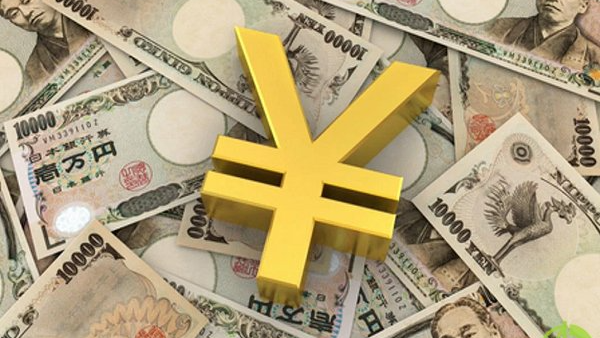The yen rises on reports that the Japanese government has decided on a more flexible inflation target

The yen rose on Monday on news that the Japanese government is set to reconsider a joint statement with the Bank of Japan (BOJ) on its inflation target, potentially paving the way for a change in the BOJ's ultra-loose monetary policy.
The yen strengthened 0.6% to 135.91 per dollar after hitting a high of 135.80 at the start of the session.
Prime Minister Fumio Kishida intends to make the inflation target of 2% more flexible by revising a joint statement with the central bank a decade ago, the Kyodo news agency reported on Saturday.
The current statement commits the BOJ to reach its inflation target "as soon as possible," and the BOJ has stubbornly stuck to its dovish monetary policy. This position and the resulting interest rate differential with the rest of the world have caused the yen to fall by more than 15% this year.
"I think that in the end, this may provide timely flexibility, but will not bind the bias of monetary policy in one direction or another," said Vishnu Varathhan, head of economics and strategy at Mizuho Bank.
"And so, in the end, it won't necessarily have an inevitable or undue impact on the yen, at least not until there is clarity about intent and execution."
Elsewhere, the dollar fell early in trading in Asia, while sterling rose 0.29% to $1.2175 after falling 1% last week as investors bet the Bank of England (BoE) could close to completing a cycle of rate hikes.
The euro rose 0.14% to $1.0598 and the Australian rose 0.25% to $0.6703.
The U.S. dollar index was down 0.18% at 104.62.
As a result of a series of central bank meetings last week, the Bank of England, the Federal Reserve and the European Central Bank (ECB) raised rates by 50 basis points, with the Fed and the ECB making hawkish statements and promising to raise rates even further, even with the risk of worsening growth.
U.S. business activity declined further in December as the volume of new orders fell to its lowest level in 2.5 years, S&P Global said Friday, releasing its U.S. PMI index.
In China, President Xi Jinping and his senior officials have vowed to strengthen the country's economy next year as the country grapples with worsening covid infections following the abrupt end of many key principles of the Zero Covid policy.
The Chinese offshore yuan last rose slightly at around 6.9720 per dollar.
"I think the pace of easing has been too fast," said Carol Kong, currency strategist at Commonwealth Bank of Australia.
"In the near term, the economic data will continue to weaken and show violations related to Covid, and I think that if we see a further deterioration in economic data, then the markets are likely to revise their optimistic forecasts for the Chinese economy."
Read more:
World Bank: approved $350 million financing for RISE-II operation in Pakistan
China keeps Loan Prime rate steady at record Lows.
'A lackluster January through May': One chart shows what stock investors can expect in a crucial election year
With Bitcoin Spot ETF Approvals, Halving and Incoming Upgrades, What Should You Expect from BTC in 2024?
Polygon Labs Announced Upcoming Updates for Products and Events Expected in December
Cross-Chain Protocol Wormhole Secures $225M in Funding, Now Valued at $2.5B
United Kingdom Seeks to Strengthen Its Digital Asset Sector
The Dow Jones has seen a dreaded 'death cross.' Here's what it means.
USDT Accounts for 80% of All Crypto Transactions in Brazil in 2023
US SEC Approves Grayscale’s Ethereum ETF Filing
Binance Secures New Euro Banking Partners to Resume Fiat Transactions
Bitcoin Is Good Hedge in Current Geopolitical Tensions, Says Paul Tudor Jones
Circle Intervenes in SEC Case against Binance, Defends Stablecoins’ Regulatory Status
Web3 Startup IYK Raised $16.8M in Recent Funding Round Led by A16z
Bybit to Suspend UK Operations in Response to FCA’s New Rules
Celsius Former Chief Revenue Officer Pleads Guilty to Criminal Charges, Awaits Sentencing
US Judge Dismisses Class Action Suit against Uniswap
